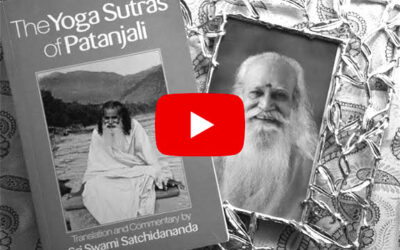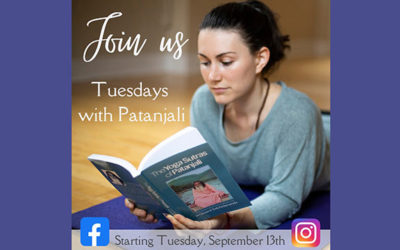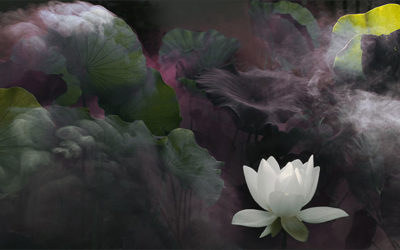Explore Latest Posts
Explore Yoga Sutras Videos
More Articles
Using the Yoga Sutras in Daily Life
We all get those physical signs of stress and anxiety. We might feel tired or have random aches and pains and can’t pinpoint the source. We stretch, we breathe, and we feel rejuvenated right afterwards. But after a few days the same aches and pains are back, and...
Yoga Sutras of Patanjali Video Series
Join Integral Yoga Master Teacher Nalanie Chellaram as she teaches the Yoga Sutras of Patanjali. The series begins with an overview of the text and why it is such an inspiration to so many. Utilizing the commentaries by Swami Satchidananda, along with insights from...
The Kleshas: Exploring the Elusiveness of Happiness
The kleshas are Yoga’s framework for understanding the discord between our desires and our lived experience. Deborah Adele’s new book, The Kleshas: Exploring the Elusiveness of Happiness, lays open the insight and wisdom of the sage Patanjali, as described in the Yoga...
Questions and Answers on the Yamas
Q: In the Ramayana and Mahabharata, it’s clear that there was killing. The Gita itself takes place on a battlefield. How is this explained and justified in terms of ahimsa (non-violence)? Swami Satchidananda: In the Bhagavad Gita, Krishna talks about non‑violence to...
Yoga Sutras of Patanjali Online Study Group
Join us as we explore the Yoga Sutras of Patanjali through Sri Swami Satchidananda's translation and commentary! Tune in to Facebook every Tuesday beginning September 13, 2022 at 10 am (Eastern) as we study each sutra slowly and carefully, broadening our attitudes and...
Can the Yoga Sutras Bestow Power?
Observing how Yoga has changed the world, I cannot help but wonder how the world has changed Yoga. As the plethora of Yoga studios and communities formed, they focused mainly on serving the physical body. The calling was great; strengthen and balance the body—that is...
A Nondual Approach to the Niyamas
Retaining what we’ve learned about the yamas, we now train our attention on the niyamas which occur in sutra 2.32. When prefixed to a noun “ni” can be a negation. It also means “down, back, in, into, within.” Thus, niyama is traditionally rendered “observances”...
Light on the Yamas & Niyamas: Aparigraha, More than Non-Stealing
We’ve come to the final yama (in the five yamas of the Yoga Sutras of Patanjali) and the last occurrence of Patanjali’s “via negativa” approach. Aparigraha, commonly referred to as “non-grasping,” is composed of graha (seizing) with two prefixes attached: a (not) and...
Light on the Yamas and Niyamas—Brahmacharya, More than Celibacy
There’s no doubt that Patanjali intended brahmacarya (brahmacharya) to mean “celibacy.” He wrote for and to young men who were monks in training. Let’s break the word down just a bit. Brahma means God, specifically the God of creation. And it also is a shortened form...
Light on the Yamas and Niyamas—Asteya: More Than “Not Doing”
In this column, Dale Ann Gray offers reflections on the yamas and niyamas of the Yoga Sutras, incorporating insights from classical Nondual Yoga. With the yama of asteya, we arrive at Patanjali’s second use of a negative prefix in the yamas. The definition indicates...










